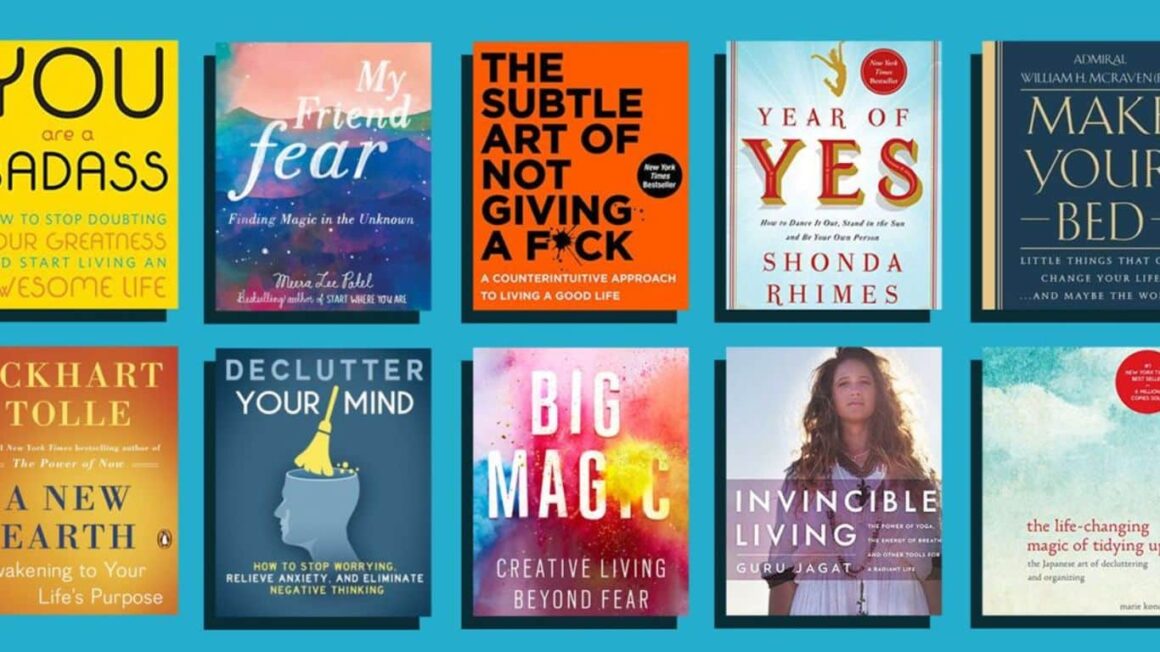- By exposing readers to new ideas, non-fiction books challenge their beliefs, expand their perspectives, and enable them …
- These books provide readers with in-depth knowledge and understanding of specific topics, allowing them to expand their …
- Moreover, non-fiction books are often written by experts in their respective fields, who have spent years researching an…
- By exposing readers to diverse cultures, experiences, and perspectives, non-fiction books help us understand the world b…
- By highlighting these qualities, non-fiction books can help readers develop a growth mindset and believe in their own ab…
- Reading non-fiction books can help increase vocabulary in several ways.
Importance of Non-fiction Books: Non-fiction books are a source of knowledge, inspiration, and motivation that offer a unique blend of facts and experiences. They provide readers with an opportunity to broaden their horizons and gain a deeper understanding of various topics, ranging from history and science to personal development and self-help. By exposing readers to new ideas, non-fiction books challenge their beliefs, expand their perspectives, and enable them to make informed decisions. Whether you are seeking to improve your life, gain expertise in a specific field, or simply feed your curiosity, non-fiction books are a valuable tool for learning and growth.
In a world where information is readily available at our fingertips, it can be tempting to rely on the internet for answers. However, non-fiction books offer a level of detail, depth, and context that is often lacking in online sources. They are written by experts in their respective fields, who have spent years researching and refining their knowledge. With the help of anecdotes, case studies, and other engaging elements, non-fiction books bring complex topics to life, making them accessible and enjoyable to read.
Beyond the realm of education and self-improvement, non-fiction Books can also play an important role in shaping our perspectives and attitudes. Whether it’s by exposing readers to new cultures and experiences, or by presenting them with challenging viewpoints, non-fiction books broaden our horizons and encourage us to think critically about the world around us. They can also inspire us to make positive changes in our lives, or to take on new challenges and pursue our passions.
Importance of Non-fiction Books
Expand knowledge
Non-fiction books are a treasure trove of information, covering a wide range of subjects, from science and history to psychology and economics. These books provide readers with in-depth knowledge and understanding of specific topics, allowing them to expand their understanding of the world. Whether it’s learning about the latest scientific discoveries, understanding the complexities of the human mind, or exploring the history of civilizations, non-fiction books offer readers an endless supply of knowledge and insights.
Moreover, non-fiction books are often written by experts in their respective fields, who have spent years researching and refining their knowledge. This means that readers can be confident that the information they receive is accurate and reliable. Non-fiction books also provide a level of detail and context that is often lacking in online sources, making them an ideal source of knowledge for those seeking to deepen their understanding of a subject.

Develop critical thinking
One of the key benefits of reading non-fiction books is that they encourage critical thinking and independent thought. By presenting different perspectives, opinions, and viewpoints, non-fiction books challenge readers to think beyond their own beliefs and evaluate the information presented. This helps readers develop the ability to form their own opinions, think critically about the world, and make informed decisions.
For example, non-fiction books on political and social issues often present opposing views, allowing readers to compare and contrast different perspectives. This helps readers develop a nuanced understanding of complex topics and promotes independent thought. Additionally, non-fiction books that provide solutions to real-life problems can also encourage critical thinking by challenging readers to find new and innovative approaches to solving problems.
By encouraging critical thinking and independent thought, non-fiction books play an important role in shaping our perspectives and attitudes. They challenge us to question our assumptions, consider different viewpoints, and form our own opinions. This can lead to a deeper understanding of the world and promote intellectual growth and personal development.
Enhance problem-solving skills
Many non-fiction books are written to provide practical solutions to real-life problems, teaching readers how to approach and solve problems in innovative ways. This can be particularly useful for individuals looking to develop their professional skills, or for anyone facing challenges in their personal or work life.
For example, non-fiction books on leadership and management can provide readers with strategies and techniques for effectively leading teams and organizations. Books on personal finance can help readers understand how to manage their finances, reduce debt, and save for the future. Similarly, non-fiction books on health and wellness can teach readers how to maintain a healthy lifestyle and prevent chronic diseases.
By providing practical solutions to real-life problems, non-fiction books help readers develop their problem-solving skills and provide them with the tools they need to navigate the challenges they face. Whether it’s in their personal or professional life, non-fiction books can help individuals approach problems with confidence and find effective solutions.

Improve self-awareness
Personal development and self-help non-fiction books can play a significant role in improving self-awareness by helping readers understand their own motivations, values, and personality traits. By gaining a deeper understanding of who they are and what drives them, individuals can make more informed decisions, set realistic goals, and build fulfilling relationships.
Personal development and self-help books often use a variety of tools and techniques, including questionnaires, self-reflection exercises, and real-life examples, to help readers gain insight into their own personality, motivations, and behaviors. These books can also provide readers with strategies and techniques for managing emotions, overcoming personal obstacles, and developing a positive outlook on life.
Expand worldview
By exposing readers to diverse cultures, experiences, and perspectives, non-fiction books help us understand the world beyond our own experiences. This can be particularly valuable in an increasingly globalized world, where exposure to different cultures and perspectives is more important than ever.
Expanding our worldview not only broadens our understanding of the world, but it also promotes empathy and understanding. By learning about different cultures and experiences, we can develop a deeper appreciation for the diversity of the human experience, and work towards creating a more inclusive and tolerant world.
Inspiration and motivation
By showcasing real-life examples of individuals who have overcome adversity and achieved their goals, non-fiction books provide readers with the encouragement they need to pursue their own dreams. Whether it’s a memoir of an entrepreneur who started a successful business, or a biography of a notable historical figure who made a lasting impact on the world, non-fiction books are full of stories of individuals who have faced challenges and emerged victorious.

These stories can serve as a source of inspiration and motivation for readers who are struggling to find the courage to pursue their own goals. They provide proof that success is possible and demonstrate the power of perseverance, determination, and hard work. By highlighting these qualities, non-fiction books can help readers develop a growth mindset and believe in their own ability to overcome obstacles and achieve their goals.
Increase vocabulary and language skills
By exposing readers to a wide range of words and ideas, non-fiction books help to increase knowledge and fluency in a particular language. This can be especially valuable for those who are learning a new language or looking to improve their language skills in their native tongue.
Reading non-fiction books can help increase vocabulary in several ways. For example, by reading books on a variety of subjects, readers are exposed to new words and phrases that they may not encounter in their daily lives. This can help to build a larger vocabulary and improve comprehension skills.
Also Read: How to Create a Vision Statement for Your Life



